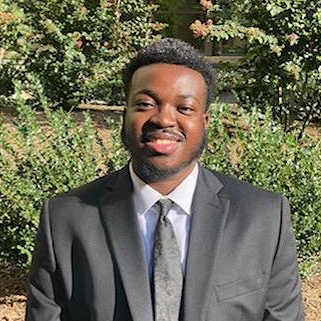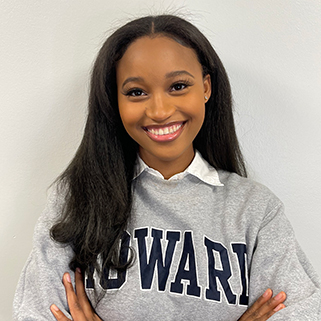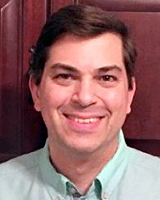
Credit: Jayden Bryant
“Before coming to NIH, I wanted to become an orthopedic surgeon,” shared Jayden Bryant, an Honors Biology student at Howard University. “But now, I’m exploring more options and considering different areas of research, like oncology.”
For the past year, Jayden has been training with a research mentor, Christopher Wassif, M.Sc., Ph.D., a staff scientist in NICHD’s Section on Molecular Dysmorphology, as part of the Honors Biology curriculum. Howard University 

Credit: Christie Cambridge
“I’m very happy to have Dr. Wassif’s advice and mentorship,” shared Christie Cambridge, another Howard University Honors Biology student. Christie, who is from Nassau, Bahamas, aspires to become a specialized surgeon and serve her community, which has a need for medical providers. “Dr. Wassif really invests in us and that makes a noticeable difference,” she said.
Now juniors in college, Jayden and Christie spent their freshman year in the middle of the COVID-19 pandemic and had to attend classes virtually. They moved to campus for their sophomore year, but even now, their NIH experience has been virtual. Both attend virtual lab meetings and have weekly one-on-one meetings with Dr. Wassif to conduct literature reviews, learn how to evaluate research papers, and work on their thesis proposals. They both hope to come to the NIH campus at some point during their undergraduate training for hands-on experience.
Jayden and Christie explained that they became interested in Dr. Wassif’s research after he presented about his work on Nieman-Pick disease type C1 (NPC1). NPC1 is a rare genetic disorder that primarily affects children and adolescents, causing a progressive decline in neurological and cognitive functions. People with NPC1 eventually have trouble moving, eating, and speaking, and there is currently no cure. Dr. Wassif and other clinical researchers at NIH have identified and tested therapies to slow disease progression.

Credit: Dr. Wassif
“Dr. Wassif’s research bridges basic science and the clinic. I’m drawn to that concept, and there are so many potential therapies that still need to be tested,” said Jayden. “I recently submitted my honors thesis proposal, describing how I’ll conduct a drug study using the i3 neuron model. We’ll use high throughput methods, which involve robotics, to screen a drug library using cultivated neurons that have the NPC1 mutation. It’s a method to test the effectiveness of a drug on the disease.”
NIH also gave Christie her first experience with clinical research. “My heart is content with a medical degree, but now, I’m exploring whether I want to take an M.D.-Ph.D. route,” she shared. “I want to keep my options open about going back to the Bahamas. Coming from a small island nation, I know how we are disproportionally affected by matters like climate change and lack of medical resources. While I can do more for my career in the states, I think I can make a bigger difference back home.”
Now in its second year, the NIH program continues to grow, with more Howard students and principal investigators (PIs) participating. NICHD PIs and postdoctoral trainees can also serve as guest lecturers for Howard’s obstetrics/gynecology residency program. NIH also runs a career planning and professional development seminar series for Howard undergraduates interested in M.D., M.D.-Ph.D., and Ph.D. paths. These programs were spearheaded by Drs. Triesta Fowler and Yvette Pittman as part of their work in the Office of Education in NICHD’s Division of Intramural Research.
“Both Christie and Jayden have a passion for science and a drive and determination that will carry them as far as they wish to climb,” said Dr. Wassif. “They bring an energy and enthusiasm you don’t often find, and they’ve reminded me of the joy that comes with young curiosity. I look forward to mentoring both students, even after they’ve left the NIH program.”

 BACK TO TOP
BACK TO TOP